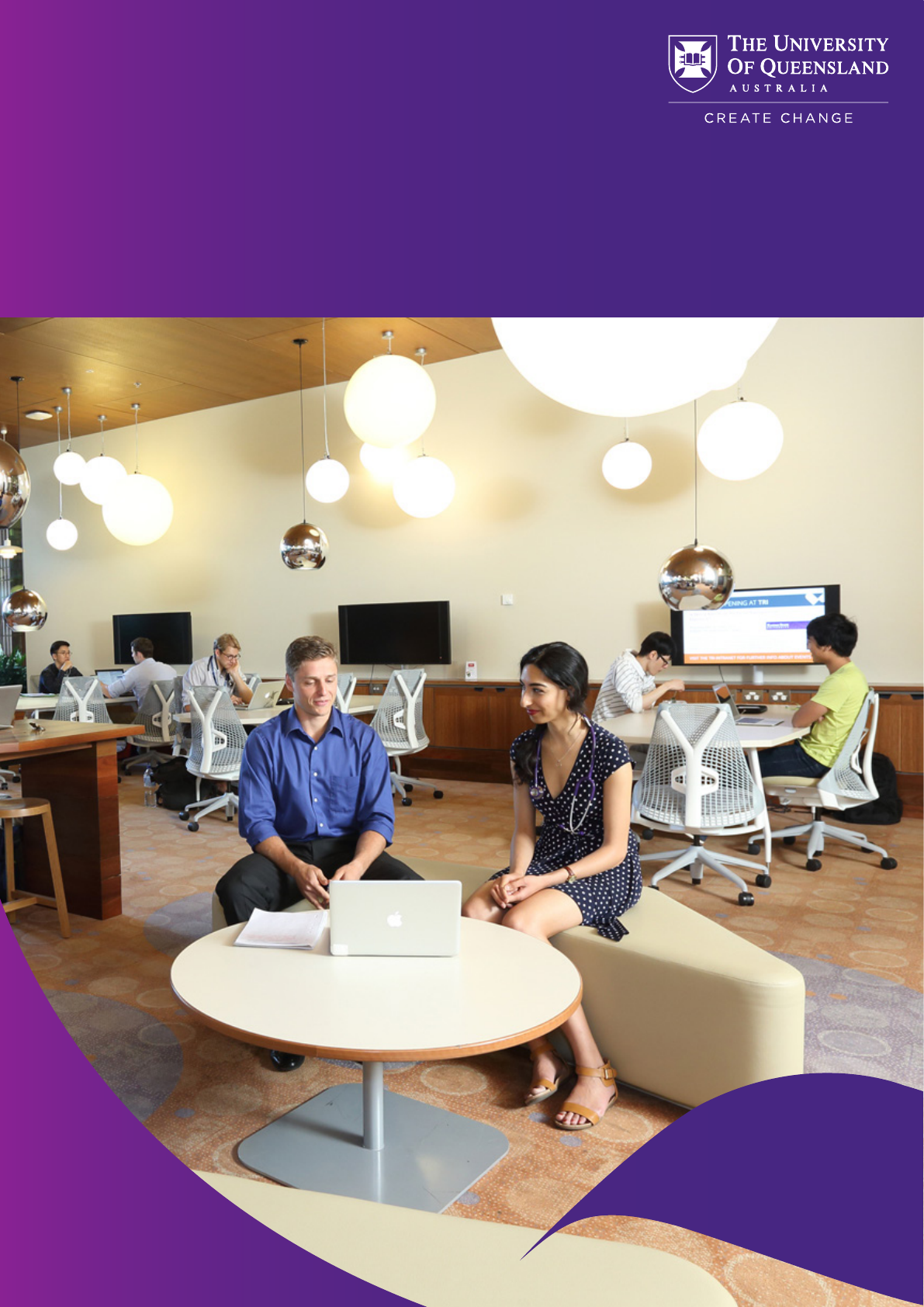
Medical School Student Aspirations
and Support Strategy 2024-2026

Contents
Introduction 3
Key focus areas 3
1. Medical School organisation, planning and policy 3
Focus and objectives 2024-2026 3
2. Supporting student wellbeing 4
Focus and objectives 2024-2026 4
3. Academic guidance 5
Focus and objectives 2024-2026 6
4. Medical careers 7
Focus and objectives 2024-2026 7
5. Equality, diversity, disability and inclusion 8
Focus and objectives 2024-2026 8
6. Supporting Aboriginal and
Torres Strait Islander students 9
Focus and objectives 2024-2026 9
7. Personal Advisor Network and Personal
Advisor Rural Network 10
Focus and objectives 2024-2026 11
8. Conclusion 11
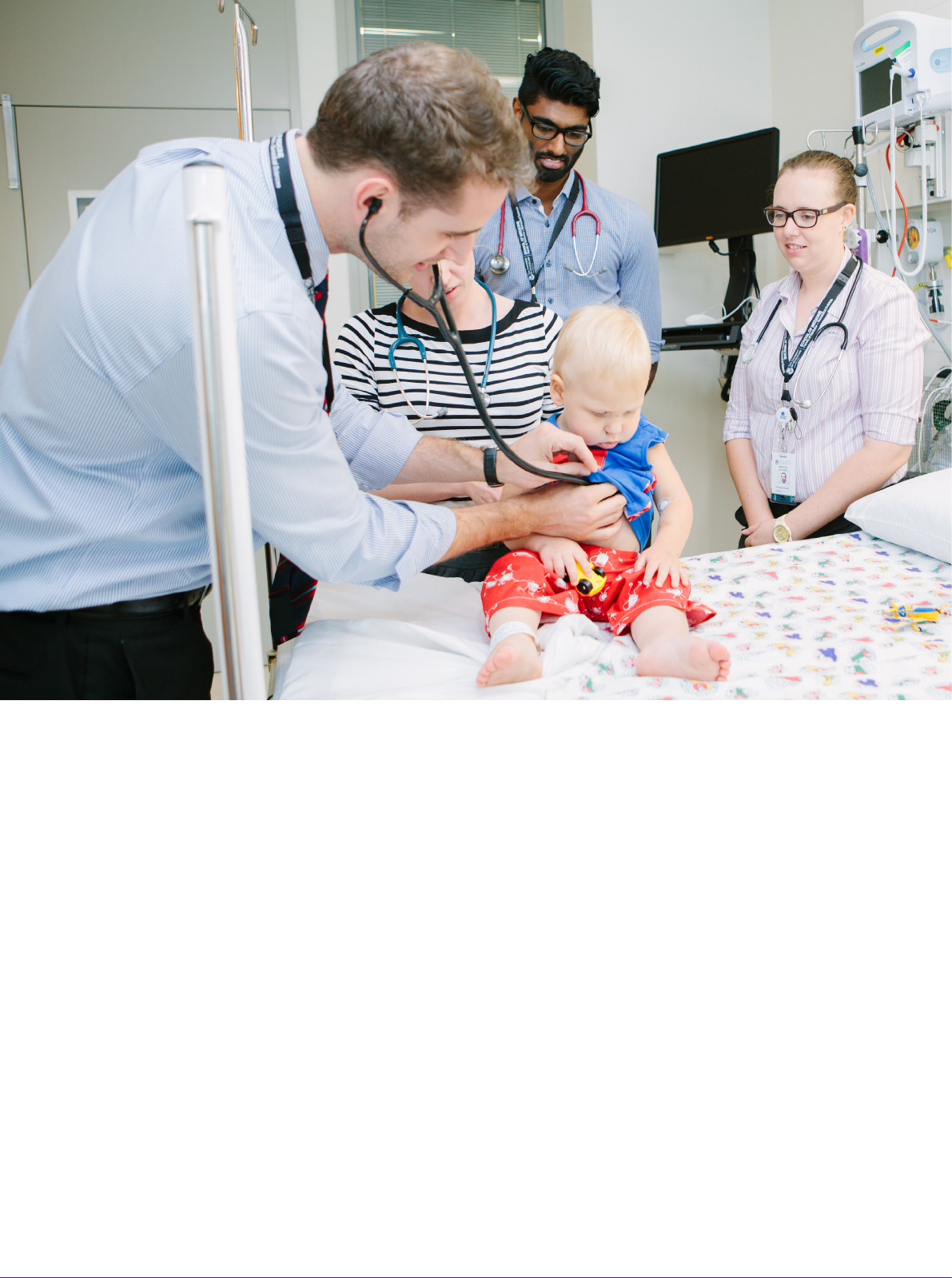
3 - Medical School Student Aspirations and Support Strategy 2024-2026
Introduction
The University of Queensland (UQ)
Medical School Student Aspirations and
Support Strategy (2024-2026) aims
to enhance the culture, pathways, and
support processes for Medical School
students. It delineates the services
provided and approach taken by the
Medical School Student Support Team,
Academic Guidance Leads, Personal
Advisor Network and Medical School
academic and professional sta.
Our overarching goal is to enable all
students to reach their full potential
by facilitating a culture of sustainable
proactive and reactive student support.
We present the following key focus areas
for 2024-2026.
Key focus areas
1. Medical School organisation,
planning and policy
Our students are part of a community of
collegiate support. Student support and
guidance is embedded as core business
throughout the Medical School. Excellence in
student support is central to our culture and
curricula.
Academic guidance, remediation, and
individualised learning, as well as career advice,
mentoring, reactive support, and specific
targeted proactive support at key transition
points is provided. We also provide specific
support for Aboriginal and Torres Strait Islander
students, international students, and students
with disabilities.
Focus and objectives 2024-2026
Student support and academic guidance has
been successfully embedded within the Doctor

4 - Medical School Student Aspirations and Support Strategy 2024-2026
of Medicine (MD) program with increased
engagement in support activities since the
introduction of the Medical Student Support
Strategy in 2018.
In January 2023, the services provided by the
Medical Student Support Team were broadened.
The team, now known as the Medical School
Student Support Team (MSST), provides
dedicated support to all coursework students
enrolled in Medical School programs, including
students in the MD, postgraduate Medicine (Skin
Cancer) and Mental Health programs.
The Medical School is committed to providing
targeted, high impact and quality student
support and this work will continue with key
areas being to:
• Further refine, explore and strengthen regular
communication with students through
the Learn.UQ course sites, newsletters,
face-to-face webinars and tailored email
communications (when appropriate).
• Support the development and management
of local engagement events and activities
that foster a strong sense of belonging for
students.
• Continue to improve clarity for sta and
students about the role of student support
and guidance services and reiterate the
separate and confidential nature of the MSST
from academic guidance, career advice and
mentoring services.
• Continue to develop and implement
professional development opportunities for
sta, especially those in clinical schools/
units, to enhance the culture, structures, and
processes of providing support to students.
• Collaborate with students to actively
investigate and implement strategies aimed
at enhancing equity, diversity, and inclusion
within our community where all people are
encouraged and able to be their authentic
selves. Work together to explore innovative
approaches and initiatives that promote a
more inclusive and equitable environment for
everyone.
• Improve awareness of the support available
to survivors of sexual assault and harassment,
facilitate access to sexual misconduct training
for both sta and students, and cultivate a
cultural shift in the clinical environment to
discourage normalising abusive behaviour.
2. Supporting student
wellbeing
To support the mental health and wellbeing of
students, the Medical School engages Student
Services to provide targeted support services
through the MSST. Established in 2018 as part
of the Medical Student Support Strategy, the
MSST provides dedicated support to Medical
School students for all wellbeing needs, including
education and resources on preventative mental
health strategies, and refers to other services as
required. The MSST plays no role in the provision
of academic advice or academic progression
decision making and safeguards student
confidentiality. This is key to removing any
perceived barriers to students seeking support.
Focus and objectives 2024-2026
The MSST will:
• Normalise help seeking behaviours and assist
students to develop skills and resources to
manage stress and improve wellbeing.
• Support students during the identified key
transition periods: commencement of the
program, commencement of full-time clinical
placement and in preparation for internship
upon graduation.
• Raise awareness in the student cohort about
the services and resources available through
Student Services including the Student Advice
Team who assist with the provision of student
access plans, the UQ Learning Advisors who
assist students to build key skills to support
their learning, and the UQ Counselling Team
and crisis line.
• Develop and provide a range of tailored,
proactive activities and resources designed
to improve the mental health of students
and to assist students to develop skills in
identifying and responding to peers who may
be experiencing a mental health challenge.
• Continue to improve and develop strategies to
improve the health and wellbeing of students,
including self-care and wellbeing resources
focussing on preventative mental health
strategies and signposting where to access
support.
• Collect and report de-identified appointment
data on presenting conditions of students
seeking support to assist in informing quality
reviews and planning proactive education
programs.
• Support individual students through
appropriate triage and referral to relevant
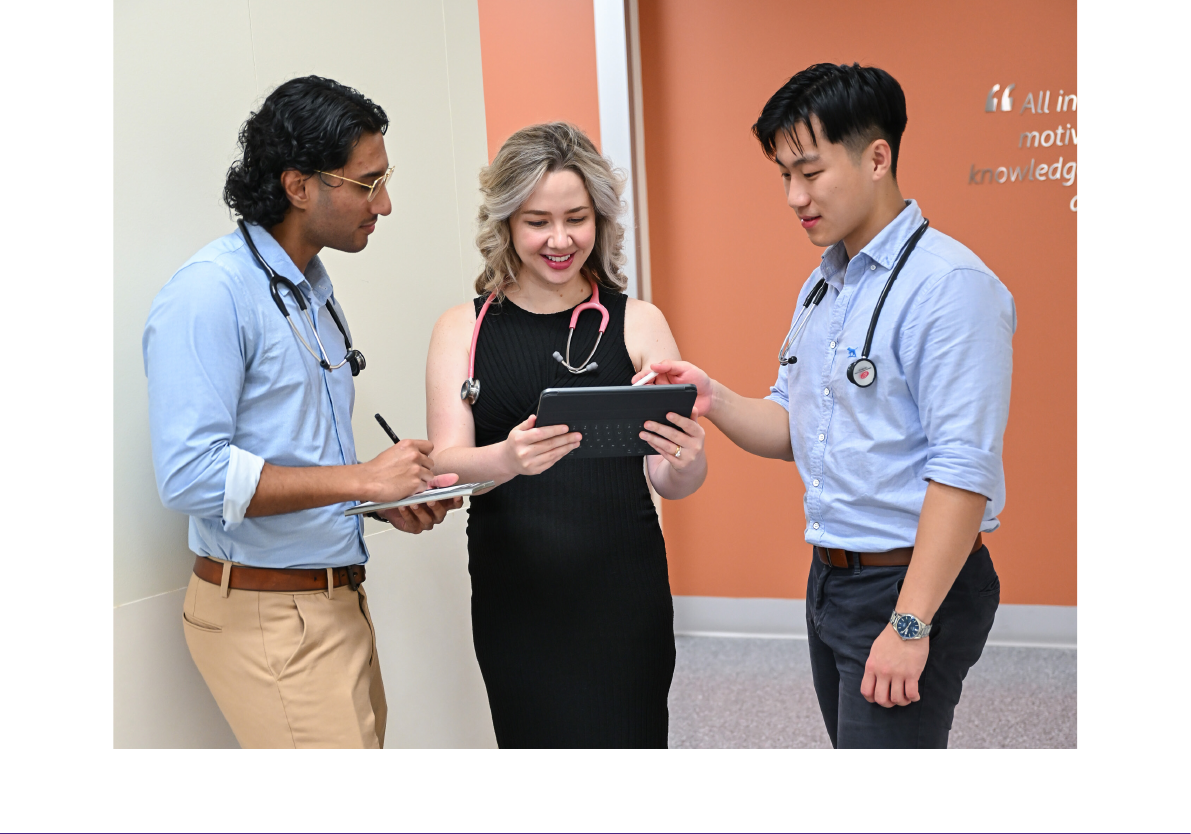
5 - Medical School Student Aspirations and Support Strategy 2024-2026
services in response to the student’s individual
needs, e.g. students returning to study after
a period of ill health, interruption to studies,
personal crisis, etc.
• Provide targeted information and support
to assist students who may be exposed to
bullying, harassment and/or discrimination.
• Respond to critical events and crises, e.g.
provide support to students following critical
incidents, perform welfare checks on students
as referred by the community, and support
students impacted by natural disasters and
global events.
• Promote trauma informed pathways of
support available for sta and students.
3. Academic guidance
Our aspiration is to enable all our students
to reach their full academic potential.
Academic guidance and support are oered
to students experiencing diculties with their
studies. Guidance and advice on enrichment
opportunities are also provided to high
achieving students. Academic guidance is
provided by many stakeholders across the
Medical School including specific Academic
Guidance Leads, supported by the Deputy
Heads of the Learning Communities in the MD
program, and Course Coordinators in other
Medical School programs.
We use a collaborative and embedded
stepped-care model of academic guidance
and support. Evidence-informed strategies,
matched to the level of need, are utilised. This
stepped-care model ensures that:
• Leadership and culture underpin support for
our students.
• Consistent advice and resources are
provided to students.
• Student support is embedded in the
curriculum.
• Students have access to personal advising,
support and mentoring.
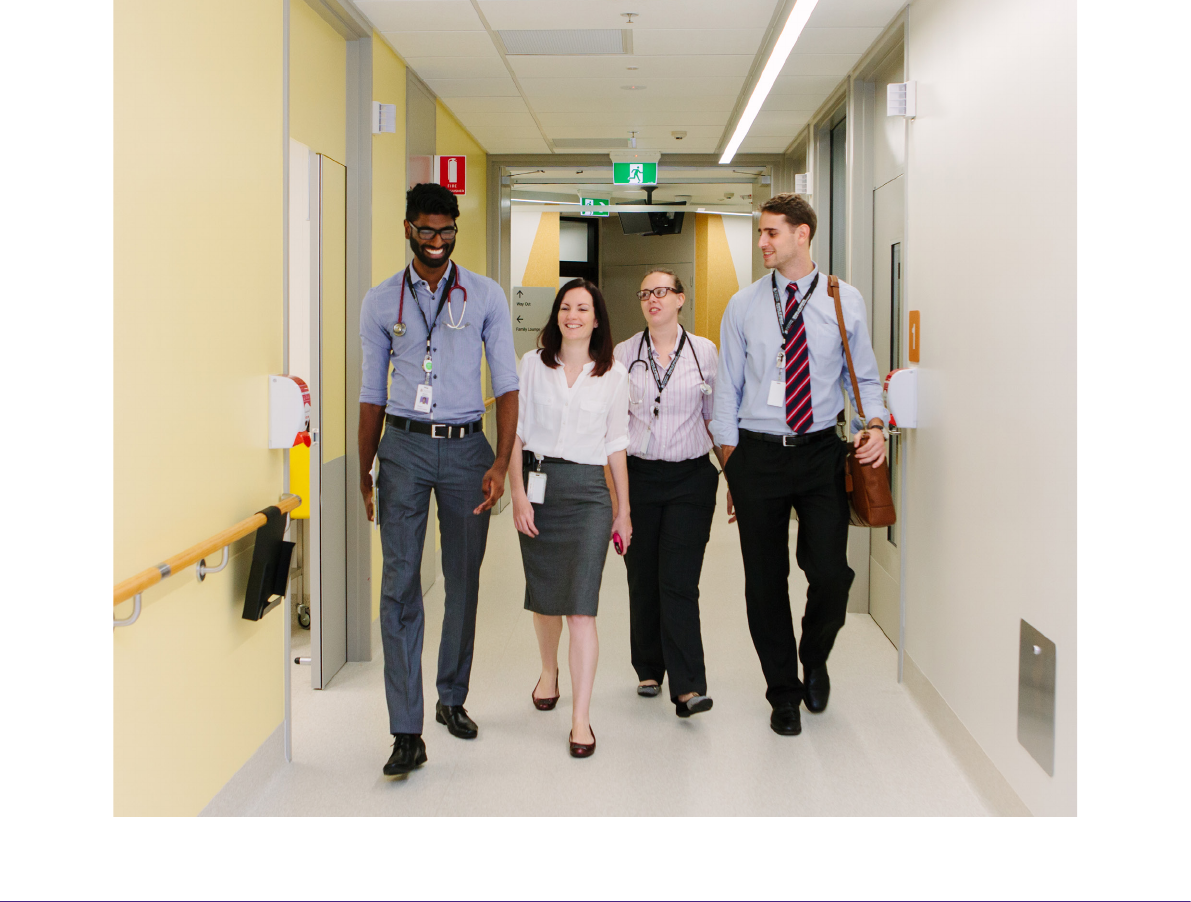
6 - Medical School Student Aspirations and Support Strategy 2024-2026
• There is proactive academic guidance
for students identified as requiring extra
assistance and for high achieving students.
• Students may be referred by a sta
member, identified through their
performance in their studies or may self-
refer for academic guidance and support.
In keeping with the principles of a stepped-
care model, academic guidance is best
provided to medical students within the
clinical unit of the Learning Community
supported by the Deputy Heads of each
year group. Specific guidance is provided, as
needed, by the relevant Course Coordinator
and Clinical Educator both within the MD
program and across other Medical School
programs. The Academic Guidance Leads
provide case management support for MD
sta and students in situations where there
are complex needs.
Focus and objectives 2024-2026
All Medical School programs
• Empower students to be self-directed and
lifelong learners.
• Encourage students to seek advice and
support early.
• Proactively reach out to students and
provide support and referrals to appropriate
services tailored to a student’s situation
(e.g. students returning from an interruption
of studies or students facing challenges
either due to unforeseen/extenuating
circumstances or ill health).
• Support clinical unit academic sta, Course
Coordinators and clinical teachers to
support individual students.
• Continue a proactive approach to provision
of academic enrichment opportunities and
career guidance.

7 - Medical School Student Aspirations and Support Strategy 2024-2026
MD program
• Actively contribute to monthly Student
Wellbeing and Success Team meetings to
support and guide at-risk medical students.
• Work in partnership with our clinical units,
to develop and enhance clinical site-based
academic guidance and support initiatives
for medical students.
• Increase involvement of clinical unit sta in
proactively identifying academically at-
risk medical students and the provision of
academic guidance and support.
• Academic Guidance Leads, in collaboration
with the MSST, will provide case
management in cases where there are
complex needs.
4. Medical careers
The Student Enrichment and Employability
Development Team promotes and coordinates
a number of initiatives which seek to strengthen
the range of global, professional and leadership
experiences oered to UQ students. The team
provides a range of experiences and support
services with the aim of enhancing employability,
including student leadership, professional and
practical experiences and careers support.
Further information about these services can be
found on the Careers and Employability website.
In addition to the careers information, advice and
opportunities provided to all UQ students, Medical
School students are provided with the following
additional specific careers advice and guidance.
• The Building Your Medical Career website,
developed in 2019, is a platform to disseminate
career information and resources and promote
career opportunities to medical students. This
website was updated in 2023, following input
from the Mayne Academics.
• Careers information is delivered in a consistent
approach across the programs.
• Individual careers advice and opportunities
are provided to students.
Focus and objectives 2024-2026
All Medical School programs
• Develop a dedicated Medical Careers network
for all Medical School students.
• Continue to support student-led initiatives
such as careers events.
• Continue to develop, maintain, and update
online medical careers resources.

8 - Medical School Student Aspirations and Support Strategy 2024-2026
• Work in partnership with the UQ
Employability Team.
• Support the “spotlight on” campaign
focussing on role models in science,
technology, engineering, mathematics, and
medicine (STEMM).
MD program
• Work in partnership with the Heads of Mayne
Academies and Ochsner Clinical School
Medical Society Heads to provide careers
advice to medical students and recruit career
mentors.
• Work with the clinical schools to identify local
medical career champions with a particular
focus on rural and regional careers.
• Ensure tailored careers advice is provided for
our international medical students.
5. Equality, diversity,
disability and inclusion
We are committed to providing a welcoming,
respectful, and inclusive workplace and learning
environment that is safe, where all people are
encouraged and able to be their authentic
selves. Our program values diversity and
inclusion. Students with disability are valued
and supported. The Faculty of Medicine and
Medical School’s firm and proactive commitment
to supporting eorts for greater diversity and
inclusion is reiterated in the statement below.
Diverse perspectives, abilities, experiences
and backgrounds inspire creativity, encourage
innovation, and enrich our communities.
Members of our broad community are valued
and respected for their individuality. UQ strives to
create a culturally safe, welcoming and inclusive
workplace, with strong community connections
and partnerships.
Focus and objectives 2024-2026
• Promote visibility in the workplace and
Learning Communities by providing options
for sta and students to identify they are
an ally by displaying visible organisational
support on persons and in places and spaces.
• Support the implementation of the preferred
names and pronouns network across internal
forms and/or systems.
• Ensure that age, creed, disability, ethnic origin,
gender, nationality, race, sexual orientation,
social standing or any other factor is no barrier
to connecting people with supports, flexibility,
development opportunities and networks in
line with the Declaration of Geneva.

9 - Medical School Student Aspirations and Support Strategy 2024-2026
• Facilitate access of sta to UQ LGBTQIA+
Inclusion training.
• Promote visibility of UQ support available for
trans and gender diverse students.
• Support sta and student participation in the
Bi-Annual Gender Equality Forum.
• Support students who may require ongoing or
temporary reasonable adjustments to access
equitable learning with student access plans.
• Continue to review and improve the processes
of communication of student access plans to
relevant Medical School stakeholders.
• Promote and encourage sta to complete
the Supporting Students with Reasonable
Adjustments online training module.
• Explore ways to support an increased
number of students from low
socioeconomic backgrounds to join and
thrive, including connecting with the Young
Achievers Program.
6. Supporting Aboriginal
and Torres Strait Islander
students
As set out in the UQ Reconciliation Action
Plan, “Our vision is to build a strong sense
of belonging in an inclusive UQ that works
respectfully with Aboriginal and Torres Strait
Islander students, sta, and communities in
teaching, learning, research and collaboration
– embracing and enhancing the best of our
nation’s and the world’s diversity.” Aboriginal
and Torres Strait Islander students are linked
with the Aboriginal and Torres Strait Islander
Studies Unit at the time of admission into our
programs to enable provision of integrated and
transformative support.
Focus and objectives 2024-2026
All Medical School programs
• Continue to work with the Aboriginal and
Torres Strait Islander Studies Unit to provide
support to Aboriginal and Torres Strait
Islander students from the time of admission.
• Work with the Associate Dean (Indigenous
Engagement) and their team to foster
respectful relationships and an environment
of cultural safety that is free of racism and
discrimination.
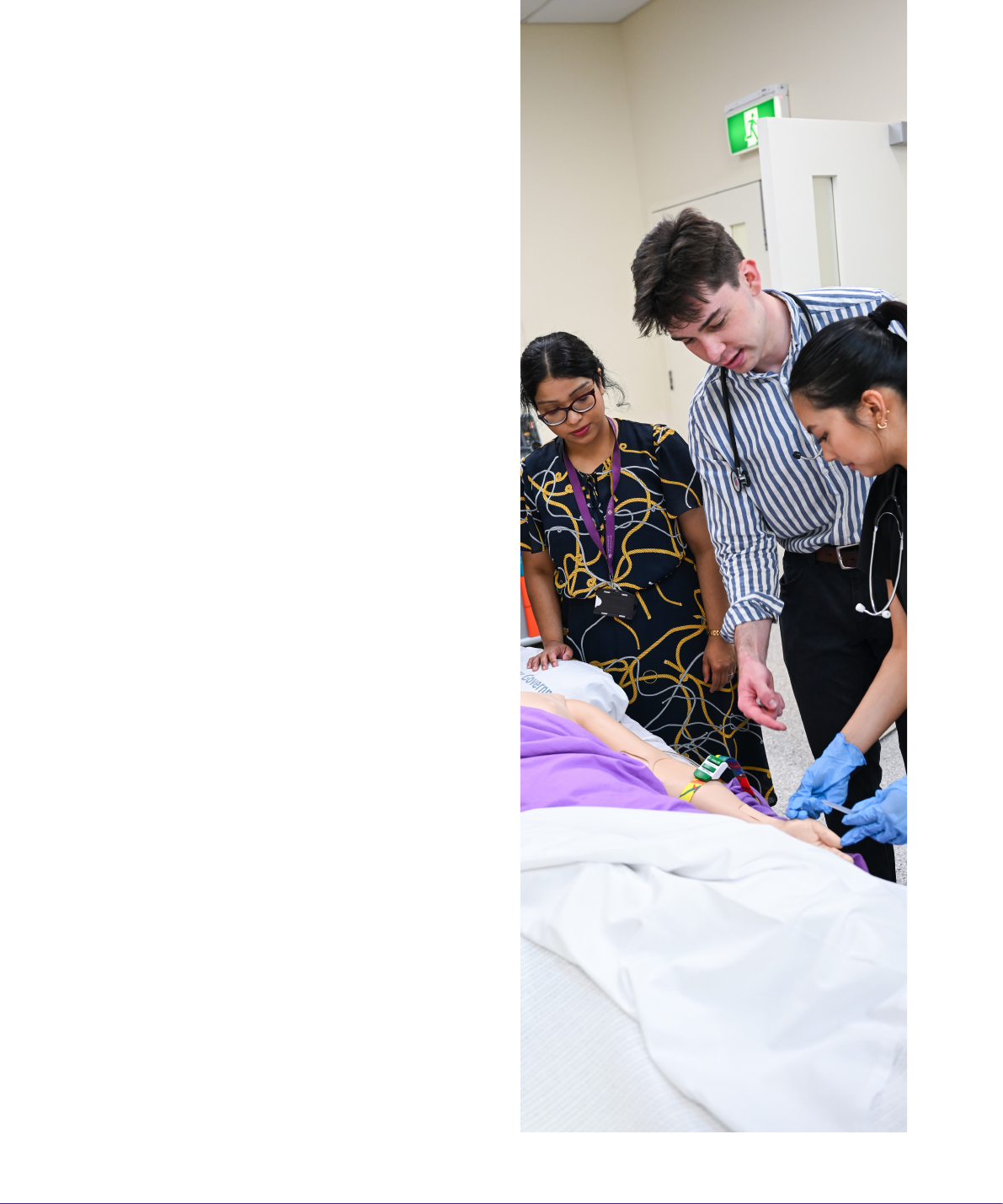
10 - Medical School Student Aspirations and Support Strategy 2024-2026
• Facilitate participation of students in the
annual Australian Indigenous Doctors’
Association (AIDA) conference.
MD program
• Continue to provide support to Aboriginal
and Torres Strait Islander medical students,
including the additional pre-orientation
program, tutoring in Years 1 and 2 through the
Indigenous Tutorial Assistance and Retention
(ITAR) program and Objective Structured
Clinical Examination (OSCE) preparation
activities.
7. Personal Advisor Network
and Personal Advisor Rural
Network
The Personal Advisor Network (PAN) provides
targeted and individualised support for medical
students to help foster a spirit of community and
connectedness. Each student entering the MD
program is invited to join the PAN and be assigned
a personal advisor, who plays a valuable role in
guiding and shaping the experience of medical
students. The Personal Advisor Rural Network
(PARN) is a subset of the PAN. The PARN has
been established with the specific purpose
of encouraging medical students with a rural
perspective and supporting rural origin medical
students or those interested in pursuing a medical
career in rural and remote communities. While it is
not mandatory for medical students to participate
in the PAN, it is strongly encouraged.
Personal advisors are members of UQ sta or
have a formal UQ aliation and have experience
in medicine or in working with medical students.
From 2023, Year 1 medical students will be
allocated a personal advisor from their Learning
Community with the aim of further facilitating
and supporting these community connections
and sense of belonging.
With the establishment of the Learning
Communities in 2023, the administration of the
PAN has transitioned to the Greater Brisbane
Clinical School and the administration of the PARN
has transitioned to the Rural Clinical School. While
day-to-day administration will be managed by
the Learning Communities at a local level, the
Medical School Executive Administration Team
remain a central point of contact and support for
the Learning Communities to ensure a consistent
experience is provided to medical students and
personal advisors.
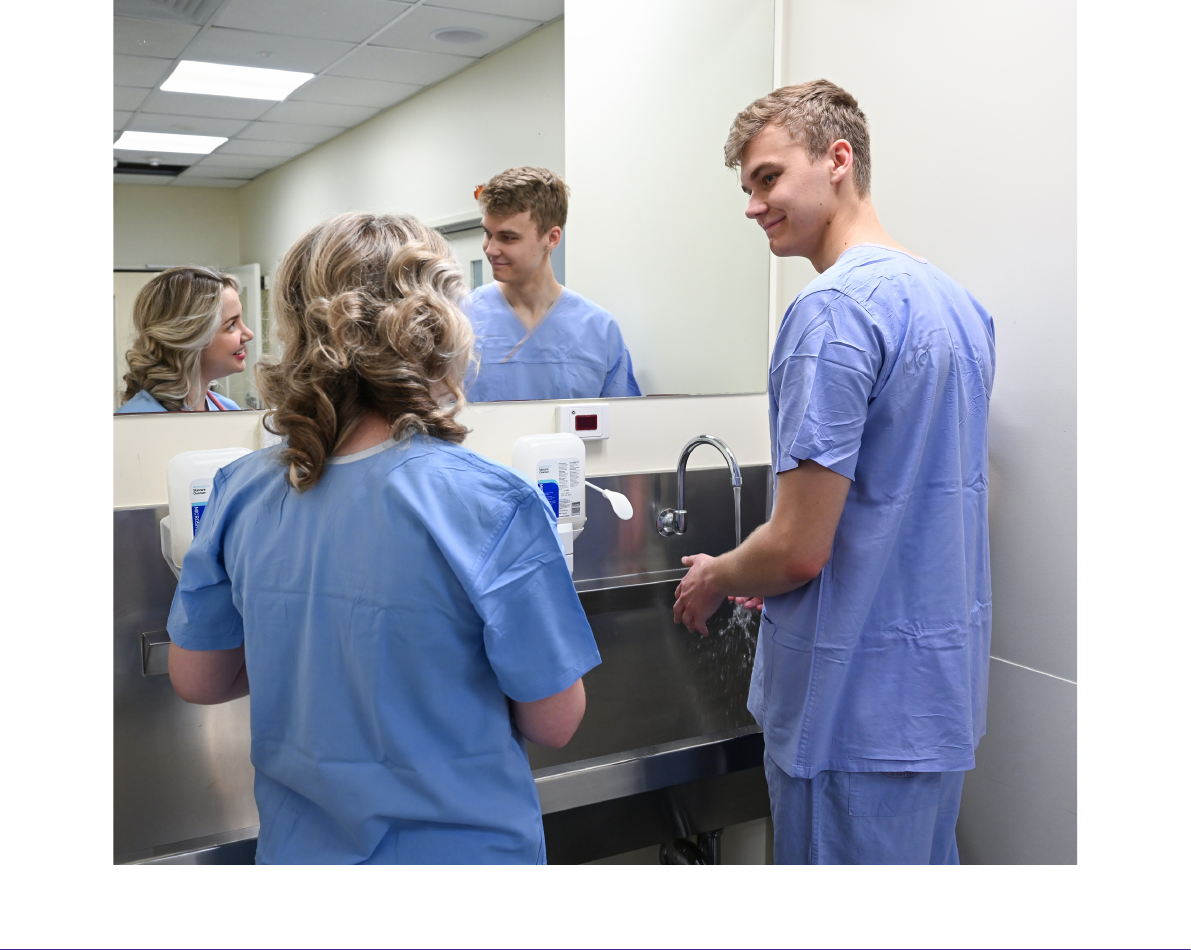
11 - Medical School Student Aspirations and Support Strategy 2024-2026
Focus and objectives 2024-2026
• Continue to oer all MD students a personal
advisor.
• Continue to recruit personal advisors, and
further refine personal advisor training and
resources.
• Conduct formal evaluation of the PAN and
PARN schemes, including the role of Chronus.
• Support a natural environment for mentorship
connections to be formed within the Learning
Communities.
• Consider expanding PAN to the
postgraduate Medicine (Skin Cancer) and
Mental Health programs, noting mentorship
is currently oered to Master of Medicine
(Skin Cancer) students.
Conclusion
The focus areas and objectives described
in this Strategy outline our philosophical
approach to student support and clarify the
ways in which we commit to providing our
students with support and guidance to enable
them to achieve their full potential. Our goal
is excellence in student support, and we will
embed evaluation and ongoing improvements
to maintain high standards.

CRICOS Provider 00025B • TEQSA PRV12080
For more information
medical-school.uq.edu.au
